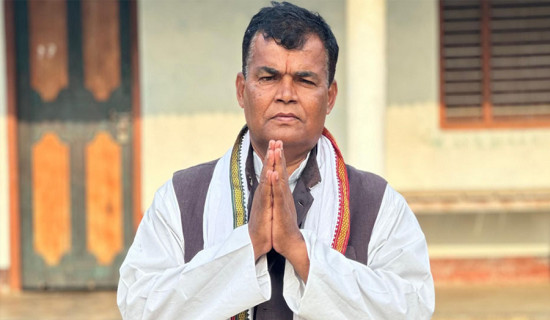- Wednesday, 4 March 2026
Winter Illnesses
In less than three weeks, this year’s winter will pass into spring. We are now at the peak of freezing season that has made the life of people, especially the children, the elderly and the sick, hard as they are susceptible to various cold-induced ailments. Meteorologists have predicted that this year’s winter will be drier with little or no rainfall. As of January 23, only 5.3 mm of rainfall has been recorded, just nine per cent of the average winter rainfall. The country normally receives up to 60 mm of rainfall during the winter. With arid winter, the people will face various problems related to health and means of livelihoods. This also increases the risks of air pollution and forest fires.
A moderate winter shower is necessary for the clean air and good agro production. Dip in temperature combined with absence of rain leads to the trapping of pollutants in the air. As wildfires rage in the dry forests, smoke gathers in the atmosphere, resulting in the poor air quality. This will indeed serve as a recipe for respiratory diseases. There are other factors that contribute to the air pollution – dust arising from the construction works, smoke generated from vehicle, which releases harmful pollutants such carbon monoxide and nitrogen oxides, burning of coal and wood. According to a news report of this daily, the air quality index (AQI) of the capital city has reached 250, which is labelled as 'very unhealthy'.
The higher level of air pollution and harsh cold have negative repercussions for respiratory and cardiovascular health. This not only hits the people with such medical conditions but also the healthy ones, who can develop bronchitis, asthma, and other serious lung diseases. This situation causes co-infections in the people when the various viruses attack the body simultaneously. Experts state that when a person gets infected with multiple viruses, it increases the chance of catching pneumonia that can be cured with timely diagnosis and treatment. In winter, children are prone to pneumonia, the leading cause of death in children under five. Pneumonia, caused by bacterial infection, is deadlier than the viral one. Children need special care during winter as they are prone to severe air pollution and lung-related diseases.
In order to protect the children under five, the parents must keep them in warm while avoiding over-bundling them. They should be provided wholesome food and fluids that help build their immune system. During the winter, there has been tendency of burning wood and coal inside the rooms. Sometime such an activity invites fatal incidents, so there should be proper ventilation to vent the harmful gases whose accumulation worsen respiratory conditions. Similarly, vaccination plays a crucial role to save the children and old people from the seasonal flu and viral infections during the winter.
There should be collective efforts to control vehicular emissions and industrial pollution. The measures the government has introduced to promote clean energy need to be effectively implemented. Likewise, it must attach top priority to improving the public health infrastructure to keep the winter-borne diseases at bay. The country's health facilities are not up to the mark due to the lack of sufficient budget, health professionals and sophisticated technology and equipment. By resolving the structural problems and generating massive health awareness among the people, the specific health complications arising in winter or summer can be better addressed.
















